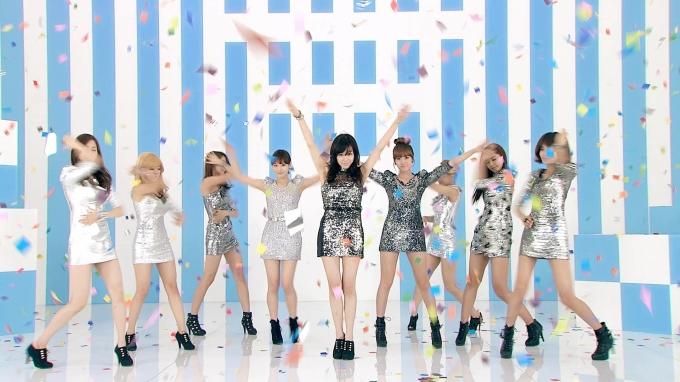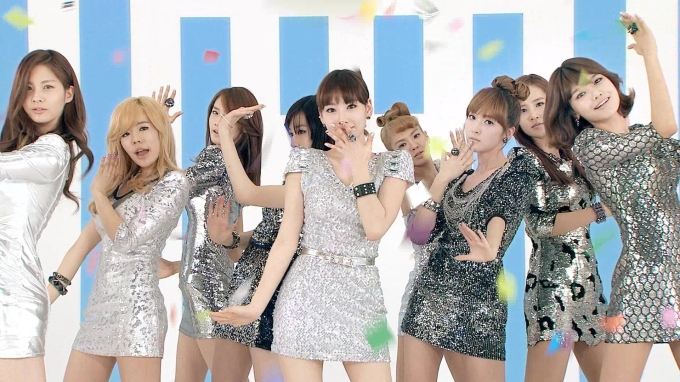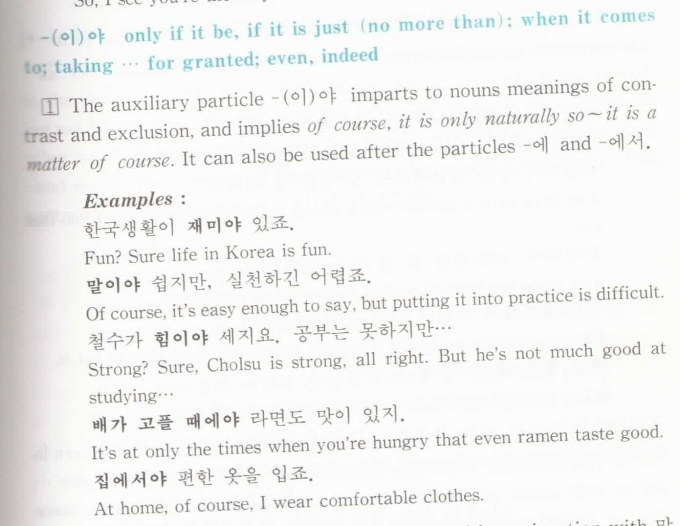Apologies for not providing the lyrics for Girls’ Generation’s (소녀시대) 2010 hit Oh!(오!) as promised, but then I’m much too addicted to DJ Areia’s remix of this one at the moment. And just like that of Oh!, which instantly got me into mainstream K-pop despite a whole decade of simply loathing it, this one has rendered an otherwise mediocre song into, well, something magical for me.
Music quality aside though, a much more striking parallel with Oh!is its narrative of helplessness, passivity, and sexual desire but both inexperience and inability to act on it, in turn very similar to Like the First Time (처음처럼) by T-ara (티아라) and Breathe (비리드) by Miss A (미쓰에이) as already discussed in previous posts. Which is not to say that all songs by Girls’ Generation or those other groups are like that of course, and in particular I’ve heard that Run Devil Run and Hoot! are quite different. But still, jumping ahead to the conclusion of a project I’m working on at the moment, there does seem to be a definite paucity of song themes for popular Korean girl groups these days.
Alternatively, you could argue that this isn’t really an official song of theirs at all, but rather part of an Asia-wide marketing campaign for Intel’s 2nd Generation Core™ processors, and in which case it should possibly be viewed more as something aimed at a very techie audience, and therefore assumed to be a largely male one. If so, then that might also explain all the obvious double entendres in it, which although not surprising in themselves (Korean advertising and popular culture are full of them), are most definitely aimed at men here.
Either way, but for their regulation hot pants (which have less sexual connotations in Korea than they do in Western countries anyway), actually you might never have realized this from the music video itself, in which all 9 women appear even more cute and innocent than normal. Those of you who would still like to maintain that rather naive image of them then (and there’s an awful lot of you, both in Korea and in Western countries!), by all means feel free to watch the video with DJ Areia’s remix below, followed by the slow – nay, appalling – original under that, as well as all the screenshots provided courtesy of this 26MB(!) zip file from Red and Rosy. As for the lyrics though…well, read them at your peril!
Update: I’ve rewritten some of the lyrics in response to a commenter’s suggestions, many of which require a great deal of extra explanation. Rather than add those explanations to the post though (which would mean completely rewriting it), I’ve indicated the changes with an asterisk, with a number next to that to indicate what part of this comment to refer to for the explanation:
One Two Three Four 짜릿하게 어머나
One Two Three Four 너를 원해 이미 난
One Two Three Four 솔직한 내 맘을 다 들켜버릴래 다 들려줄래
촉촉촉 오 달콤한 내 입술에 Come Come Come 천천히 그래 다가와
Tic Tac Toe 오 아찔하게 네게 푹 빠져버린걸 녹아버린걸
One Two Three Four Oh, how exciting (*1)
One Two Three Four, I already want you
One Two Three Four, I want to tell you all my honest feelings, I want them to be discovered (*2)
Yes, oh, come come come to my sweet, moist lips
Tic Tac Toe, Oh, you make me hot and giddy…Despite myself, I’ve deeply fallen and melted for you (*4,6)
First up in what turns out to be the chorus, in line 1 the “게” in”짜릿하게” make the word look like an adverb, which would give…er….”tinglingly”, but following the advice of commenters on the last translation then I’ve wisely tried to sever the mental link I’ve long had between “-게” forms and adverbs (especially as “짜릿하다” could just as well be “thrilling” say). Meanwhile, “어머나” is an expression of surprise that is almost exclusively used by women, the closest English equivalent I could think of being “Oh my!”, although in practice it’s usually said very quickly (and so just “Oh!” might be better).
Next, in line 3, “들켜버릴래” is a combination of “들키다” (to be found out, discovered, caught etc.), “버리다” (literally to throw away, but when added to another verb gives a sense of relief and/or completeness in finishing the act”, and then “~ㄹ래” (to want to do the verb). And so after all that, then, “I want to tell you all my honest feelings” seems more than sufficient, but nevertheless the Korean includes the superfluous “들려줄래”, or “I want them to be discovered”. Possibly it just makes the words flow better, and indeed there does seem to be a lot of nonsense words in the song as a whole for that reason.
Finally, line 5 – “Tic Tac Toe 오 아찔하게 네게 푹 빠져버린걸 녹아버린걸” – is literally “Tic Tac Toe – oh – dizzily – to you – fall + 버리다 + thing – melt + 버리다 + thing”. As you can see, I thought “dizzily” was fine in this case (although probably “I’m dizzy” is okay), but really don’t understand why the fall and melt parts were in the “~ㄴ걸” (thing) form.
Update: The “~ㄴ걸” form isn’t as simple as I first thought. As discussed in #4 and #6 of that later comment I refer to, this explanation from Korean Grammar for International Learners (KGIL) is required (pages 224-225):
처음 느낀 이 감정 My Deep Love Core
점점 뜨거워지는 얼굴 숨이 막히는 순간 어쩌지
떨리고 있어
Boy boy boy boy bo bo bo boy boy boy boy
고민고민 해봐도 모르겠어
상상만으론 정말로 하나도 오 how to do my first kiss
Just wait a minute?
Boy boy boy boy bo bo bo boy boy boy boy
망설이지 말고 my love get into my core
This is the first time I’ve had this feeling My Deep Love Core
My face is getting hotter and hotter, and at this moment I can’t breathe. What should I do? (*3, 5)
I’m trembling
Boy boy boy boy bo bo bo boy boy boy boy
I don’t know what to do no matter how much I agonize (*see below)
No matter how I think through it over again and again, I’m just not sure. I truly have no idea, from just imagining [it], how to do my first kiss (*7)
Just wait a minute?
Boy boy boy boy bo bo bo boy boy boy boy
Don’t hesitate my love, get into my core
An awkward verse.
My first problem was with “어쩌지” in line 2, which I mistook for “어쩐지”. That means “so that’s why!”, which made no sense here. Once I realized my mistake though, “어쩌지” wasn’t in my dictionary, and so I turned to my long suffering wife, who said it means “what am I going to do?”.
Next was “고민고민 해봐도 모르겠어” in line 5, which, although I’m sure my translation of “Even though I worry and worry about this, I just can’t solve it” is fine, I was stuck on it for a while because it doesn’t seem to make much sense in the context of the song (learners, note there’s a missing “아무리” at the beginning).
*(Update: with thanks to commenter dogdyedblack, probably “I don’t know what to do no matter how much I agonize” is better).
Both were a doddle though, compared to line 6, “상상만으론 정말로 하나도 오 how to do my first kiss”, literally “imagination – only – through – as for – really – through – one more again – oh”. But my wife said that there should be a “모르겠다” after “하나도”, and that together “하다도 모르겠다” means “I really don’t know”, and with that knowledge and the context then we cobbled “I can’t really do it only in my imagination, I have to do for real, oh how to do my first kiss”. I admit that that might not be the final word though!
Finally, the English “just a minute” in line 7 seems very strange next to the “don’t hesitate” in line 9, but that is definitely what both say. Perhaps the English in line 7 is just something essentially random by the song writers, which happens all the time in K-pop, but then much of the English in the rest of the song suggests otherwise. Get into her core indeed…
Ahem. Anyway, next is the chorus again:
One Two Three Four 짜릿하게 어머나
One Two Three Four 너를 원해 이미 난
One Two Three Four 솔직한 내 맘을 다 들켜버릴래 다 들려줄래
촉촉촉 오 달콤한 내 입술에 Come Come Come 천천히 그래 다가와
Tic Tac Toe 오 아찔하게 네게 푹 빠져버린걸 녹아버린걸
One Two Three Four Oh, how exciting
One Two Three Four, I already want you
One Two Three Four, I want to tell you all my honest feelings, I want them to be discovered
Yes, oh, come come come to my sweet, moist lips
Tic Tac Toe, Oh, you make me hot and giddy…Despite myself, I’ve deeply fallen and melted for you
내 맘 속 visual 너무 완벽해
네 가지 고민 언제 어디서 무엇을 어떻게만 빼고 헤매고 있어
Core Core Core Core Co Co Co Core Core Core Core
우물쭈물 하단 놓칠지 몰라
망설임 the end 여길 봐 두근두근 pop pop 들리지 어때
Core of my love
Core Core Core Core Co Co Co Core Core Core Core
지금이야 바로 start! jump into love core
[When I imagine the scene of our first kiss in my mind, with images pulled from the movies, comics and TV programs I have watched ever since I was little] the visual images in my mind are so perfect (*9)
But for 4 kinds of things not to worry about – when, where, what and how – I’m puzzled
Core Core Core Core Co Co Co Core Core Core Core
If you keep hesitating, you might miss [lose] me
Hesitation, the end, look [listen] here: how is the throb throb pop pop sound [of my heart]?
Core of my love
Core Core Core Core Co Co Co Core Core Core Core
Yes, of course, start right now, jump into love core
The final verse already, unfortunately much of it is completely non-nonsensical. Starting with line 1: “내 맘 속 visual 너무 완벽해” which gives “Inside my heart the visuals are perfect”, which means…well, God knows, but probably alludes to the functions of the chip more than it continues the romantic narrative of the song. But anyway, note that “맘”, short for “마음”, really means something between heart and mind (a phrase difficult to sing well), and in my experience “너무” means “very” just as often as the dictionary definition of “too [much]”.
Next, my wife said that “가지” in line 2 is just another form of the counter word “게”, or “thing”, but I beg to differ: my dictionary gives “a kind, a sort; a variety”. But which is not to say that line 2 – “But for 4 kinds of things to worry about – when, where, what and how – I’m puzzled” – actually makes any sense of course.
After that, line 4 was really tough. But then my wife told me that “하단”, was short for “하다가는”, which fortunately was in KGIL. Which I’ll let you read for yourself (p.280):
As for the rest of line 4, naturally I’m assuming that it’s the object of the female narrator’s affections that shouldn’t hesitate rather than vice-versa, as clearly she doesn’t want to make the first move despite what she repeatedly says she wants him to do to her core. The same goes for line 5, although note that she does say “look here” (“여길 봐”) when “listen to this” would be better, with the “this” surely being her heart.
Finally, the “이야” in line 8 was interesting, which, seeing as I still have my KGIL next to me as I type this and have already cleared the junk off my scanner, I may as well give you page 181 of too (but sorry that I can never seem to get the book straight!):
Note that KGIL gives 4 more meanings for “이야” depending on what comes immediately after it by the way, but if you want to know those too, then buy the damn book yourself already fortunately none of those apply here.
Finally, there’s the chorus again, the first part of which is repeated twice, and with the addition of 3 extra English lines:
One Two Three Four 짜릿하게 어머나
One Two Three Four 너를 원해 이미 난
One Two Three Four 솔직한 내 맘을 다 들켜버릴래 다 들려줄래
Take you higher / oh my love ooh yeah
visual dreams / 느껴봐 beating of my heart
One Two Three Four 짜릿하게 어머나
One Two Three Four 너를 원해 이미 난
One Two Three Four 솔직한 내 맘을 다 들켜버릴래 다 들려줄래
촉촉촉 오 달콤한 내 입술에
Come Come Come 천천히 그래 다가와
Tic Tac Toe 오 아찔하게 네게 푹 빠져버린걸 녹아버린걸
ooh yeah visualize my love oh yeah
One Two Three Four Oh, how exciting
One Two Three Four, I already want you
One Two Three Four, I want to tell you all my honest feelings, I want them to be discovered
Take you higher / oh my love ooh yeah
visual dreams / try feeling the beating of my heart
One Two Three Four Oh, how exciting
One Two Three Four, I already want you
One Two Three Four, I want to tell you all my honest feelings, I want them to be discovered
Yes, oh, come come come to my sweet, moist lips
Tic Tac Toe, Oh, you make me hot and giddy…Despite myself, I’ve deeply fallen and melted for you
ooh yeah visualize my love oh yeah
Sigh: if only all song translations could be so quick and easy! Still, I have many more to do this month nevertheless, and so expect at least 2 or 3 a week in addition to other posts, starting with So Hot by the Wonder Girrls (원더걸스) on Wednesday or Thursday Sunday, followed by Can’t Nobody by 2NE1 (투애니원) on Friday next week.
Meanwhile, apologies to Girls’ Generation fans, but Oh! will have to wait until next week I’m afraid, as one Girls’ Generation song a week is probably more than enough for many people!















Good on Areia for rescuing a miserable SNSD effort….At least “Chocolate Love”, as an extended commercial, had a lot more going on for it musically. I find the original here pretty unlistenable. And thanks to you for the lyrics; definitely wouldn’t have bothered with thissong otherwise. I can just imagine (unfairly?) the writers chortling to themselves as they ticked off their required homages to intel and getting SNSD to sing a double entendre like “망설이지 말고 my love get into my core”
On the adverb thing–well, yep, I definitely think 짜릿하게 is gramatically an adverb here, but I think your translation is very good…a move to the idiomatic that captures the meaning and flavor better than the literal would.
On the line 고민고민 해봐도 모르겠어, I’d probably go for something more like “I don’t know what to do no matter how much I agonize”….
Anyway, good job again, and I look forward to seeing more of the series!
LikeLike
Thanks for the correction, and will update it after I type this. And I’m genuinely curious as to who wrote this, as all the “core” double entendres suggest someone with some decent English, and yet all the other English in it suggests anything but. But either way, with those entendres being in English, then I wonder if the language gap means Koreans as a whole have quite a different view of the song?
Would be worth following up sometime…hmmm…
LikeLike
Quite a mediocre effort indeed, I brushed it aside as a rushed effort for big sponsor bucks… and that’s a GOOD thing, if we’re to believe reports about average wages for entertainers in Korea.
About the “paucity of song themes”, are you referring to “helplessness, passivity, and sexual desire but both inexperience and inability to act on it”? In which case, yes, your three songs there sort of fit the bill, but I would very much disagree that this is the major theme of Korean girl group songs and would be more than willing to list all the female idol hits of 2010 to point that out. The opposite, I would say.
LikeLike
Sorry for the confusion, and I meant that those 3 songs mentioned (and this one) definitely fit the bill of just one of the most common themes out there. Having said that, with rare exceptions, we only really identify a grand total of 3(!) broad themes.
Sorry that I and my coauthor can’t really say much more than that right now though, but rest assured that a book chapter with everything in detail is coming, and even a video of me making a presentation on it will be available online sometime after I actually give the presentation in May! We (or rather I) may manage to put up some kind of post for feedback before we have to present the final drat in April though, but no guarantees I’m afraid.
Back to work on it…never thought I’d say it, but am seriously sick of attractive women in hot pants by this stage of it!
LikeLike
Ah, looking forward to that! It’s so rare seeing someone who’s not a pop music journalist writing critically about artists and actually listening to the lyrics instead of assuming things based on stereotypes and superficial qualities. What book is this?
LikeLike
It’s for this.
I must say though, that actually probably I too make a lot of assumptions based on stereotypes and superficial qualities(!), and part of the reason I do these kinds of posts is to become better aware of them, both by the process of writing and commenters’ criticisms.
Hmmm…rather than repeating myself, let me elaborate on that by passing on a comment of mine on an earlier translation:
“…while a great deal of intelligent and useful commentary definitely can and has been written in English about Korean music…I’d wager that most is by people with limited or no Korean language ability. No problem, many might say, as there are plenty of subtitles embedded into Youtube songs, translations on blogs, articles on the songs and groups by bilingual speakers in newspapers and magazines etc. etc. But then I don’t need to tell you that the latter often have an agenda (indeed, that’s what got this whole series started in the first place: see here for more {scroll down to just before the picture of Girl’s Generation about 4/5s in}), and even just the experience of the limited number of translations that I have done myself have demonstrated to me that the vast majority of those available online have many mistakes. Which is not to say that mine are perfect either of course, but – crucially – other online sources both lack an explanation of the methodology behind them, and /or don’t really seem to have anyone questioning, discussing, and/or correcting them. And when, again from experience, I’ve started translated songs and (mostly) news articles thinking from a first quick reading and what I already know about the background that it said one thing, finding that indeed it did say what I thought while doing it, only then to discover much later that the inclusion of literally just one word means the whole thing actually says the exact opposite, then in a way it’s simply bizarre that more sources don’t make the translation process more transparent, and, however convenient, even stranger still that we take the accuracy of their translations for granted.
Having accused [another commenter] of the same earlier, then I don’t mean to sound elitist myself with that last, but hell: more people need to have the epiphany about over-relying on English-language sources to understand Korea that I had…”
LikeLike
“망설임 the end 여길 봐 두근두근 pop pop 들리지 어때”
Nietzsche wouldn’t find something that deep.
LikeLike
They say that the four things are precisely what they are *not* worried about. It’s everything else that has them stumbling.
Also, what you’ve done with 들리지 어때 seems weird. It is just asking for confirmation, “you can hear it, right?”
And where the “of course” came from in 지금이야 바로 is…?
Pay more attention to your wife and less to your dictionaries. And maybe it would help to consider how the English you have generated as a draft would be rendered back in Korean. That may reduce bizarre translations for common phrases.
LikeLike
Well, I’m genuinely grateful for the corrections, but you didn’t have to be quite so curt with me surely?
I think with my “But for 4 kinds of things to worry about – when, where, what and how – I’m puzzled” then it was pretty obvious that I simply forgot to put the “not” in. But still, thanks for pointing that out, and I’ll correct it right after this.
Well sure, just that bit you quote does, but what about the “두근두근 pop pop” before that: are the part of the same clause, the earlier one, a separate sentence entirely, or what? Either way, I’ll grant that “how is the throb throb pop pop sound [of my heart]?” does sound pretty damn awkward in English, but at least it addresses that question.
Did you even so much as glance at the scan of the relevant page of my grammar reference guide (not dictionary) under that that you disdain so much?
Not quite sure how you got the impression that I don’t, as all the 100+ translations on the blog are very much collaborative efforts – me doing the bulk of them and then she correcting and/or helping me with the bits that were too difficult – and probably in over 9 out of 10 times when I’ve asked her something then I have indeed followed her advice, and which I’ve almost always quite clearly stated in all those posts too. But although her English is excellent – she talks to potential English teachers on the phone all day btw, and has for 7 years – she not only frequently makes mistakes, insisting that “이야” above was exactly the same as “이다” for instance, but is just as flummoxed as I am at what some of the lyrics mean in Korean let alone in English, as indeed song lyrics in any language are often very very vague and open to intepretation. The awkward, sometimes bizarre translations reflect that.
Either way, as a native speaker who’s never learnt how to teach Korean to anyone, then like many of the ESL teachers with no training she recruits she is often aware of what’s right, but can’t explain to a non-native speaker like myself and the vast majority of my readers how or why. For my own and their sake then, I’ll stick to the grammar reference guides when she or I am at a loss, and worry about how good the Korean-English-Korean translation would be when I’m at a much higher level of proficiency (although I admit that that is still an ideal).
LikeLike
I recently came across a Korean song that I thought was very interesting. It’s called ‘Huk’, by the comedian Lee Su Geun. You can see the music video here:
The song is apparently about men chasing women that they thought were attractive. However, in the end, the three women in the music video are all discovered to be unattractive for various reasons. As far as I can find, this song has never been translated into english, which makes many of the details of the story hard to follow. I know that this is not a girl group song, but it does relate to Korean gender and pop culture — would writing a translation/explanation of this song be of interest to you?
LikeLike
I’m so busy that it’ll be a little while before I can even think about looking at it properly sorry, maybe even as late as next month. But thanks for passing it on, and it gives me an opportunity to also write about a recent health drink ad that plays on the idea that it can get rid of your beer googles, which I wanted to do a post on but which wasn’t really enough for one by itself.
And naturally, now that I actually need to remember the name of that drink for the first time in 2 weeks, then suddenly I can’t sorry! But I’ll pass it on here as soon as I do.
LikeLike
Please allow me to elaborate.
I am sorry if you took what I said as nasty. I didn’t really mean it that way. Personally, I really like your site in that it introduces new glimpses into Korean pop culture that I don’t have access to otherwise. I also find it a bit frustrating how you seem to flounder on the translations. But that is because you put it all out there for everyone to see. Note, I say “personally” because that’s my problem not yours. Your level is what it is and you are clearly trying to get better. Also, God knows pop lyrics can be pretty opaque.
I do not believe that there is a good Korean-English dictionary or grammar in existence. Not your fault or mine. But the upshot is that relying on these tools is a shortcut to frustration, in my view. This is what I meant by the comment that you may want to make more use of your native informant. I suppose it’s quite possible that you don’t share my view of the poor quality of grammars and dictionaries, however.
May I say that I don’t see any obvious double entendre here. If there were, I think they would make it obvious, or at least ambiguous, that they are really talking hesitation and giddiness over a first kiss. It seems to me that this interpretation all stems from an unfortunate use of bad English that makes it *appear* suggestive to a native English speaker?
Also, if I may,
1. You correctly note that 짜릿하게 is an adverb, but then step away from it to get “this thrilling, tingling feeling.” The “feeling” bothers me here. I would have preferred something like, “Oh, how exciting” or, more colloquially, “oh, what a rush.”
2. “다 들켜버릴래 다 들려줄래” seems like she wants them to be discovered without her having to tell, which is what you put in brackets but didn’t use in your main translation. The whole time she seems to be wanting him to read her mind and move in for that kiss. Certainly TELLING him will ruin the moment, no?
3. 어쩌지 is “what can/should I do?” Not “what am I going to do?” The difference is latitude to decide. The latter would have to be something more like “내가 뭐 하려는 거지?” This kind of thing is what I meant when I said that it might serve you to re-translate your English back into Korean as a double check. Just a suggestion…
4. So “아찔하게” means “dizzily”? That means, if someone got off the roller coaster at the amusement park and wanted to say, “I feel dizzy, I’ve got to sit down for a minute,” she would say “너무 아찔하다. 좀 앉아봐야 되겠다”? Items like this is where I think your dictionary did you a disservice.
5. For “숨이 막히는 순간 어쩌지” you have added “this.” It doesn’t seem that this THIS is warranted. How about “what can I do THE moment that…”
6. It seems to be your style to note lots of detail, including your own mis-readings and facts like 버리다 is literally “throw away.” But I don’t see where such parenthetical notes on the “it would seem …” nature of ~(으)ㄴ 걸 in “네게 푹 빠져버린걸” in comment or in translation. Maybe you made the grammar comment in another post and silently considered it and discarded it in the translation here as too unwieldy.
7. I really think you missed the boat on “고민고민 해봐도 모르겠어 상상만으론 정말로 하나도 오 how to do my first kiss.” Why not something like, “No matter how I think through it over again and again, I’m just not sure. I truly have no idea, from just imagining [it], how to do my first kiss.” There is no “have to do it for real,” which is strange to me because you noted that your wife already told you that the “정말로” doesn’t mean “[I have to do it] for real” but “I really have no idea.”
8. I disagree that “Just wait a minute?” sounds strange next to “망설이지 말고.” She seems to be having an inner dialog with herself about this whole first kiss thing. Something like “Oh…oh…is he leaning in to kiss me now? This would be a great time. I think I’ve given him all the hints. Why is he not coming in for the kiss? What should I do now? JUST WAIT A MINUTE and see if he makes his move then? Come on, guy. STOP HESITATING and just move on in here.” Of course this takes some liberties with the details, but I think the big picture is pretty clear.
9. 내 맘 속 visual 너무 완벽해 couldn’t be much other than “[when I imagine the scene of our first kiss in my mind, with images pulled from the movies, comics and TV programs I have watched ever since I was little] the visual images in my mind are so perfect,” could it?
10. I don’t like “헤매고 있어” as “puzzled.” “Puzzled” feels like a passive, sitting there lost but not doing anything sort of thing. More like 햇갈려. Seems to me that 헤매고 있어 is more active. As in, we are moving around and doing something, but we’re fumbling with it because we don’t really know what we are doing. Kinda like a first kiss…
11. I’ll bet you 10:1 that the thing that gets lost in 우물쭈물 하단 놓칠지 몰라 is the moment. Not “me.”
12. “망설임 the end” must be “망설임 끝!” When you keep the bizarre “the end” in your translation, I think it sounds more strange than it does to the intended audience.
13. “여길 봐 두근두근 pop pop 들리지 어때” um…something like “hey. throb throb pop pop. You can hear it, right?” Or “Hey, you can hear the beat of my racing heart, can’t you?” I don’t think that takes too many liberties.
14. 지금이야 바로 start! The 이야 that you quoted from the grammar book is a mid-sentence pattern. And “of course” is “몰론” as in, there is no room for further discussion on it. Here the 이야 is an emphatic. Sort of like topic marker (으)ㄴ but with more emphasis. Not just now but RIGHT now. I don’t have the Yonsei book, but I would guess this use is also in there somewhere, maybe among the noun particles. I have found that for me, at least, when it starts to feel like I am forcing something, that means I am working with the wrong definition of a word in the sentence. “Of course” feels forced. And the reason is that you are working with the wrong definition, trying to force it.
I hope that doesn’t come across as dismissive or curt.
LikeLike
Sorry I took your first comment the wrong way in turn, and thanks very much for all of that, which must have taken a lot of work. Unfortunately, I’ve been much too tired today to take a close look at it and try and edit my translation accordingly, but rest assured that I will tomorrow!
LikeLike
Better make that tomorrow sorry: am frankly exhausted after 3 days of not sleeping well!
LikeLike
Ahem…I should learn to stop making such promises. But I did at least manage to print off #s 1-14 and make lots of notes on them today though, which I THINK(!) I’ll finally be able to edit the post with and type up in a comment here…well, tomorrow.
Should have my translation of So Hot up tomorrow too…which were delayed because your comments prompted me to take a second, much harder look at them!
LikeLike
Thanks again for all your suggestions Taemin, and although I didn’t agree with most of them in the end, you gave me a lot to think about, and I’ve certainly got a lot of editing of the post to do after this.
Before I respond to your points one-by-one below though, I must say I’m really surprised that you’re so dismissive of grammar reference guides. Sure, of course advice from a native speaker is usually helpful, but then not every learner has access to one, yes? And even when they do, then unless that native speaker has KSL training and/or extremely high English proficiency, then they can more often than not be simply unable to explain vocabulary and (especially advanced) grammar to a learner, as explained in previous comments. In which case, surely it is only natural and completely reasonable to turn to say, a grammar reference guide in their own language translated by a renowned expert in Korean linguistics?
Moreover, you say you “do not believe that there is a good Korean-English dictionary or grammar in existence”. Well, I’ll certainly grant you the former, but I’d be interested to hear what other English language Korean grammar reference guides you’re read/used that you base your opinion on, because as far as I know – and I know a lot about learning Korean books – in fact the KGIL is the only real English language Korean grammar reference guide out there. So, although I don’t mean to be rude, frankly you don’t really seem to have any experience to back up your opinions. At least of books for English-speaking learners of Korean that is, not vice-versa: I’d be the first to agree that 90+% of books for Korean-speaking learners of English are terrible.
Finally, as discussed in #6, the use of a risqué Korean word in the lyrics, or at least one ripe for double-entendres, indicates to me that the English ones are no accident. Sure, under the logic that it sounds good to Koreans, then Korean companies produce occasionally accidentally risqué, sometimes funny, usually nonsensical English in their advertising all the time, and even despite warnings from native English speakers within the company. But not only is this not a Korean company this time, but it’s a campaign for all of Asia, so chances are whomever was responsible for the lyrics paid much more attention to the English than usual.
Okay, here we go:
– As people who’ve read previous translations on this blog can attest to, I’ve always had a bit of trouble with Korean adverbs. And so while thinking about your comment, just on a whim I looked up the dictionary definition of them…only to discover that I’ve had completely the wrong impression of them for the last, hell, 25 years, thinking all the time that they only modify verbs, and definitely not “any part of speech other than a noun”. Needless to say, this completely changes how I’ll translate Korean from now on.
I’ll definitely go with your choice “Oh, how exciting” then. But not “oh, what a rush” though (despite how much dogdyedblack likes it!), as although asking someone for a date etc. can definitely be an adrenalin-fueled experience sometimes, let alone sex itself, that particular expression is usually reserved for much much more exciting and/or dangerous activities.
– I certainly agree on the nuance, but with the exception of forgetting to change the brackets to a comma (which I admit was sloppy of me), I think that that line should stay as it is. I think that matches up with the literal Korean the best, and that in trha form still people can tell that she won’t reveal her feelings, even though she wants to.
– Disagree: not only was it my wife that came up with this one, but I think they often mean exactly the same thing in English. “What should I do?” though, certainly rolls of the tongue much better, so I’ll change it nevertheless.
– Will be the first to admit that Korean dictionaries suck, as indeed I make sure my own students are well aware of at the beginning of each semester. But I’ll get back to this in a moment, as you discuss the line again in #6.
– Disagree: I think she’s talking about what’s happening now (this moment), as indicated by the “떨리고 있어” in the next line, not about such a moment in general or in the future (the moment). But I did miss an “at” though, which I’ll add after this.
– While I do give lots of detail, I don’t discuss every single grammar point in my translations, for three reasons: 1) that would be extremely long and time-consuming; 2) as an intermediate learner, I write for that level, and don’t bother discussing what I consider too basic; and 3) if I’ve already covered something in an earlier translation, then I’m not going to cover it again.
I didn’t here for reasons 2 &3, but with the benefit of hindsight it is more complicated than I thought, and deserves discussion. And frankly I’m also now a little unsure if I have actually already discussed it in a previous translation or not, which means it’s high time to start keeping track of what grammar and vocabulary I’ve already discussed in detail, to avoid repetition and give something quick and easy for interested readers to refer to. I’ll probably do so by writing a separate reference post.
Sticking to the line itself for now though, and back to your point #4, my [crap] dictionary says that “아찔하다” means “dizzy; giddy; faint”, with example sentences from Naver giving mostly the first meaning. But my wife says it means more dizzy in the sense that someone is dizzy from being turned on, as in “그녀의 노출이 아찔하다” , and indeed the bulk of the revealing images from an image search for the word attests to that. Its use here also strongly suggests that the lyricists knew full well all the double entendres of the English phrases they were using, as mentioned earlier
Add “~ㄴ걸” basically meaning “contrary to what you might have expected,” as explained in the scan of the corresponding page of KGIL I’ll add to the post after this, then I now think that “Oh, you make me hot and giddy…Despite myself, I’ve deeply fallen and melted for you” would be best. Granted, the Korean doesn’t contain “you make me”, but I think the basic message is correct.
– Yes, agreed…blame doing it late at night! The “정말오” didn’t mean “for real”, but rather “really” as in “very”. And with the missing “모르겠다” after “하나도”, giving “하다도 모르겠다”, which she said means “I don’t know at all”, which is very similar to “I really don’t know”, then you’re left with “I really really don’t know”!
– Sure
– Quite a lot in the brackets there, but sure!
– Sure, but can you suggest something to replace it with then?
– Perhaps. But surely the effect is the same?
– Well, the English “the end” is in the original lyrics, so however bizarre (you’ll get no disagreement from me!), it has to stay.
– Sure, at first glance I don’t think it does either. But technically, the line does end with “어때”, short for “어떻다” or “how”…not “can”. So however much more elegant your version is, I think how it is at the moment is both closer to the original and easier to understand for learners.
– “Mid-sentence pattern”? What about the 2 examples of the 4 in the book where they start the sentence, as you could see in the scan?
But regardless, I really don’t understand your problems with “of course”, which doesn’t detract at all from the rest of the sentence – which would be “Yes, start right now, jump into love core” – and certainly don’t feel that I’m forcing it.
Sorry, but I think you’re completely mistaken here.
LikeLike
A bunch of random comments here:
@abcfsk: I’d be really interested to hear your typology of major K-pop themes of 2010. I think even the three major themes that James has mentioned can be sub-divided, and there may well be others, so it’s always useful to hear alternate interpretations/categorizations.
@Taemin: Nice post. I don’t find it dismissive or curt, and that holds true for your first one. Part of the problem with written communication, and the tone of voice one then projects on to it. It’s great to see somebody engaging with the translations in such detail, and I like a lot of your renderings, as for 짜릿하게 = “what a rush.”
I have to admit that I’ve often been going through them fairly quickly rather than comparing closely line by line and working through James’ explanations for how he comes up with things. James, I think it’s admirable that you do it that way and it’s probably very valuable for a lot of learners, precisely because it’s so rare to hear somebody think through the process aloud. But I’m also reminded of something a fellow translator said to me once when I offered to give a read through of a draft: “If I’m going to on a date to the prom with you, I wouldn’t want you to watch me getting dressed.” A very memorable line, and while I don’t necessarily agree, it’s stuck with me.
Yes, pop songs are opaque. I often have a hell of a time in interpreting lyrics in English (esp. if I’m listening to a song rather than seeing the lyrics on a page/screen), let alone when you get the ever increasing and often absurd code-switching of K-pop these days. But I do think the line “get into my core” in English in a romantic/erotic context would come across as a double entendre to someone with native or near-native English abilities. As I suggest above I’m really agnostic, though, about whether it was intended by the songwriters or simply an accident of writing a song for Intel.
(Actually, I’d be very interested to hear others’ thoughts on Chocolate Love:I don’t think the SNSD version comes across as a double entendre b/c of the emphasis on the product placement, but except for a shot or two of a black phone early on, the much more erotic f(x) version sure as hell seems like it’s pushing the envelope when you listen to the lyrics closely.
And agreed: dictionaries/grammar books can lead you astray, but so can native speakers who don’t have an extremely high level of English….and with pop songs there is the added issue that two native speakers can have pretty different interpretations of what might seem to be linguistically a pretty straightforward line….
LikeLike
Dogdyedblack,
your analogy about getting dressed for the prom reminds me very much of an old comment by Gomushin Girl:
Which has likewise stuck with me. But anyway, I certainly hear you about the ignominy of revealing almost literally everything that goes into my head as I do the translations, and partially it reflects my lack of confidence with the language. Mostly though, I think it’s very important to be transparent with how my final translation(s) are arrived at given the unspoken agendas and assumptions that often – nay, usually – underlie how Korean popular culture is presented in the English language media, as I alluded to in this comment on an earlier post (and repeated above), and would definitely like to add a line or two to that effect in the final book chapter (and especially the phrase “the gatekeepers of Korean culture”, which I think/hope is my original invention!).
Related, am glad you raised the point “that two native speakers can have pretty different interpretations of what might seem to be linguistically a pretty straightforward line”, because when 5 or even more translated versions of said line are equally valid, then it behooves the translator to make clear what their assumptions and/or understanding of the song’s narrative etc. is and hence why they chose the version they did.
LikeLike
First,
[If that doesn’t work, search for CN Blue mascara CF.] Something a bit different… saw it today and immediately remembered this comment. Cracks me up!
Second, just a quick question: do you think perhaps “sweet lips” could have a slightly different meaning to Koreans than it does to Westerners? For instance, “sweet kiss” gets the same point across without seeming as graphic to us as “sweet lips.” Would your average Korean feel the need to soften the impact of a phrase like “sweet lips,” or is it inherently less graphic to them than it is to us?
LikeLike
Sometimes remixes can make songs magical, I only started listening to 2NE1 after I had heard some amazing remixes of their songs.
Here’s another Visual Dreams remix by rexrowdee:
LikeLike
Thanks for passing that on. Although it’s a little slow for my tastes, it’s certainly better than the original.
LikeLike
What is this KGIL book, and where can I get it?
LikeLike
As I mentioned in the post, it’s Korean Grammar for International Learners. You can buy it at most bookstores in Korea that have English books (and online of course).
LikeLike
It really bothers me that you used an ampersand in the title instead of the word ‘and’. An apersand should be used for things that go together and not in the company of commas, like the name of a law firm.
It’s the same difference between the Japanese と and や; (not that you know Japanese) I’m sure there’s a Korean equivalent.
LikeLike
Well, I’ll change it this time, but in those cases when it’s necessary to fit a title into one line then I’m afraid I’ll still use it for aesthetic reasons.
LikeLike
I’ve never heard of something like this… I think it’s definitely “allowed” to use it in a title / paragraphy title as and. Especially because I’ve never heard of it being exclusively used for ‘things that go together’. Which is a pretty vague description anyway. It’s more an artistic solution used to replace the word ‘and’ in certain situations. And doesn’t carry any other meaning than ‘and’.
As far as I know anyway.
If I’m wrong please refer me to relevant texts.
So using it in a title to fit it in 1 line is perfectly acceptable.
LikeLike
The adult recommended food intake is 400 milligrams per day, and the upper limit is
350 milligrams from nonfood sources. It also helps control surplus testosterone that could otherwise
impede breast growth. No report was available as
of yet as to the condition of the smuggler after the removal
of her implants, but no doubt Spanish Customs officials will be
keeping abreast of the situation.
LikeLike